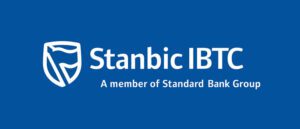
2023: PoS fraud increases by 19.5% in Q1
…As Nigerian banks lose N472m to fraudsters
A report on fraud and forgeries in the Nigerian Banking System has revealed that fraud increased by 19.51 per cent in Q1 2023 bringing the figures to 1,985 cases from 1,661 cases in the previous quarter.
The report also disclosed that Nigerian Banks lost N472 million during the first quarter of 2023 to fraudulent activities.
This amount reflects a significant decrease from the N3.18 billion reported in the fourth quarter of 2022, representing an 85 percent loss reduction.
According to the report, although there has been a decrease in the recorded cases of fraud, the prevailing incidents of fraudulent activities remain a significant concern.
“It is crucial for Nigerian banks to establish robust internal control systems that can effectively detect and prevent fraudulent activities.
“Such systems can help to safeguard the interests of both the banks and their customers and promote trust in the banking sector,” according to the report.
A further breakdown of the report shows that fraud activities were performed using a range of channels, including ATMs, Web, and Mobile Banking Platforms ((including the USSD and e-Naira channel), Bank branches, and Point of Sale (PoS) terminals.
However, there was a decrease across all channels of fraud except for PoS fraud, it said.
The ATM channel recorded a 38.61 per cent decrease from 404 cases in Q4 2022 to 248 cases in Q1 2023. Similarly, Mobile and Web channels recorded a 9.78 per cent and 17.81 per cent decrease in the number of cases respectively.
For the amount lost by the payment channel, the analysis shows that there was an increase in the amount lost to fraud for the ATM channel and Bank Branch channels.
The amount lost via the ATM channel increased from N949 million to N1.6 billion (68.51 per cent) while the amount lost in bank branch increased by 43.86 per cent from N119.95 million to N172.56 million.
On the other hand, the amount lost via the Web channel decreased by 95.38 per cent with a value of N30.8 million from N2.83 billion in the previous quarter. Similarly, Mobile and PoS fraud channels decreased by 15.76 per cent and 43.86 per cent respectively.
The Financial Institutions Training Centre (FITC) reports that for banks to take control of incidence relating to fraud, they should invest in modern fraud detection technologies that can identify and flag suspicious transactions and patterns, such as machine learning algorithms and artificial intelligence (AI) tools.
“Additionally, regular risk assessments can help identify potential vulnerabilities and threats to the banking system. This should include identifying emerging trends in fraud and updating risk management strategies accordingly.
“For an effective risk assessment procedure, there is a need to equip teams with risk assessment training programs and refresher programs such as those offered by FITC,” it said.
A recent document titled ‘Financial Inclusion and Cybersecurity in the Digital Age’ by Managing Director at International Monetary Fund (IMF) , Kristalina Georgieva, said the world is becoming more reliant on digital financial services; hence the increase in cyber attacks.
“COVID-19 accelerated our digital advancements, and opportunities are multiplying at an even faster pace. But so are the risks.
“And if we want to harness the great power of technology to lift people, we need to deal effectively with the threats that can bring technology down and harm lives and livelihoods,” Georgieva said.



